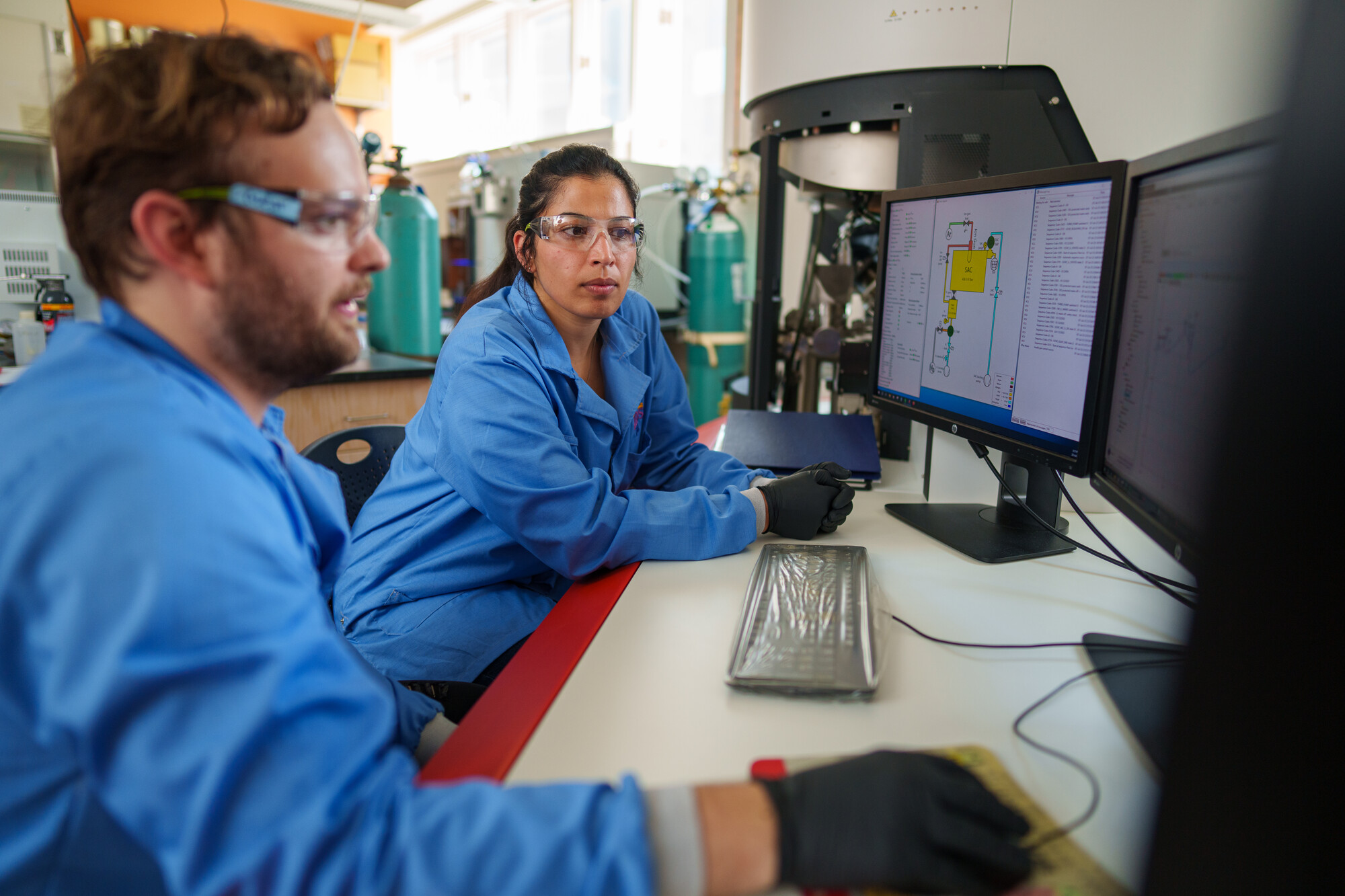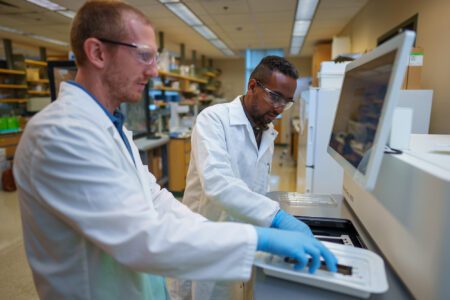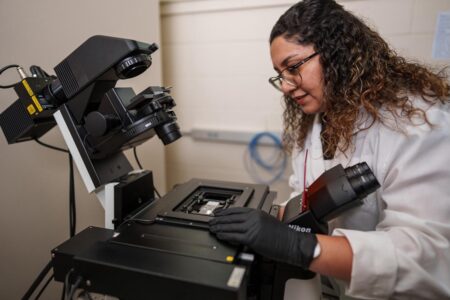What’s it like conducting biomedical research at an R1 classified university? Hands-on collaborations with your peers, professors, and or colleagues, working with state-of-the-art instrumentation, doing research that may lead to groundbreaking discoveries. There’s no limit to ideation, no barrier to innovation. You could go as far as studying the mechanisms of antifreeze proteins – specifically, how they bind to ice – to improve the preservation of biological materials in medicine and biotechnology. You could even use sheep, cow, and fish animal models to better understand female reproductive physiology, and derive applications for cancer and infertility.
At the University of New Hampshire in New England, faculty, researchers, and students are committed to improving the world, one day at a time. UNH is one of the 187 universities to hold an R1 designation from Carnegie Classifications, doing so in 2019, which is a testament to the commitment from faculty, researchers, and students to make a difference through scholarship. With strong industry connections, the latest equipment, and rigorous lab experiences – it’s no surprise that most UNH students graduate with a competitive edge to shape the future.

UNH’s programmes in the College of Life Sciences and Agriculture are focused on building industry experiences. Source: University of New Hampshire
A growing demand for biomedical experts
The biomedical industry is steadily evolving. As the 21st century marks the age of technology and artificial intelligence, the world needs highly trained biomedical experts to tackle complex healthcare challenges now more than ever. Proficiency in AI, data analytics, and biomechanics is essential as researchers seek to enhance patient care, diagnosis and delivery. Professionals within the industry command strong salaries, with the median annual wage for bioengineers and biomedical engineers last year being US$106,950.
At UNH’s College of Life Sciences and Agriculture (COLSA), MS programmes in Bioinformatics and Molecular and Cellular Biotechnology (MCBT) are adept at preparing students for careers in fields such as biomedical engineering, pharmaceutical science, process development, and more. Both programmes span one year of intense coursework and experiential training, where you’ll develop the knowledge, skills, and industry contacts to build a transformative career.
“The bioinformatics master’s programme at UNH helped me to gain hands-on experience with real data and tools that are used in the field,” says Sharanya Chinthala, a current student. “I’ve been able to work on the projects that combine biology and coding, which has really helped build confidence in my skills.”
The heart of UNH truly lies in its close-knit, face-to-face approach. One requirement of the bioinformatics and MCBT programmes is to undertake training experience in either a research lab or industrial setting.
These are opportunities that can launch careers. More so when paired with interdisciplinary projects by faculty advisors that take place in cutting-edge research centres, the likes of the Hubbard Centre for Genome Studies (HCGS), the Centre of Integrated Biomedical and Bioengineering Research (CIBR), the Biomanufacturing Innovation Centre (BIC), and more.

In the Department of Molecular, Cellular, and Biomedical Sciences, 39 faculty members are conducting research in a wide range of areas. Source: University of New Hampshire
“I came in knowing I wanted to work in biotech but feeling pretty intimidated by the technical side,” says Poorna Praveena Vallabhu, an MCBT student. “Now I feel confident walking into any lab setting. It’s not just the technical skills. I’ve learned how to think through problems, work effectively in teams, and understand what it’s really like to do research in industry settings.”
UNH doesn’t hold back from using its connections to leverage opportunities for students. In the Department of Molecular, Cellular, and Biomedical Sciences alone, you have 39 faculty members conducting research in areas like host-microbe interactions, neuroscience, structural biology and proteomics, and more – many winning awards at the university and national levels for their excellence in teaching, research, and mentoring.
Then, there’s the university’s location. The Durham campus is close to Boston and the Massachusetts Life Sciences Corridor, which practically places the leading biotech and pharmaceutical companies of today on your doorstep. Advantages like these allow you to gain meaningful experiences, with 73% of COLSA students participating in internships and or research prior to their graduation.
“For me, the [MCBT programme] is one of the biggest steps toward my career goals for either working in research or continuing on to a PhD,” says Chinthala. “Both coursework and research opportunities make it a great fit for anyone looking to grow in this field.”
Ready to make a difference? Check out UNH’s College of Life Sciences and Agriculture here.













